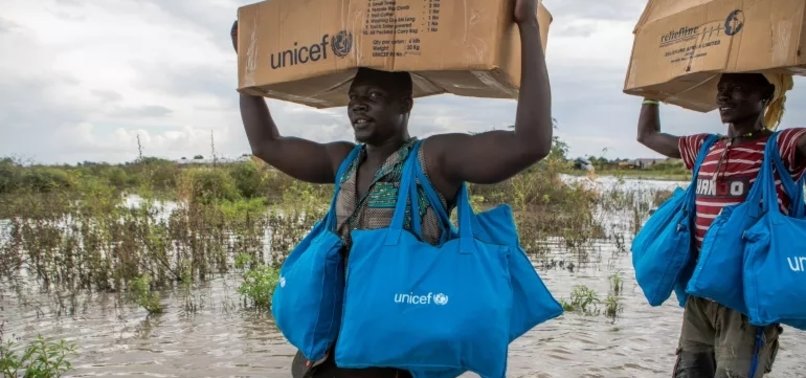WNAM MONITORING: UN Humanitarian Coordinator in South Sudan Anita Kiki Gbeho said that around 960,000 people have been affected by recent floods, stressing that “about 9.3 million people need some form of humanitarian assistance.”
Speaking to Anadolu, Gbeho addressed the deepening humanitarian, economic, and political crises in the country.
She said South Sudan is “experiencing above average rainfall” and added: “Almost a million people are impacted, and this is primarily in six states.”
“Two states which are the most heavily impacted, Unity and Jonglei States, together host over 90% of those affected,” she noted.
Gbeho identified Upper Nile as the third most affected state, emphasizing that the flooding is worsening an already critical humanitarian situation.
Describing the overall situation, she said: “The operating environment is challenging. Inflation stands at about 100% and oil revenue has declined. 92% of the population is below the poverty line.” Gbeho warned: “We are in the midst of a climate crisis. Political tensions have moved into conflict.”
“This year, we have had a funding crisis. So overall, the situation is a perfect storm of challenges,” she emphasized.
On the government’s response, Gbeho said: “These challenges weigh heavily on South Sudan’s stability. The question is how to stop the fighting and resolve conflicts through dialogue. How are civilians protected so that they’re not impacted by political tensions?”
“We’re standing by the people and the government to realize these objectives,” she added.
Addressing the impact of the floods on women, Gbeho said: “Women are the backbone of their communities. They take care of families, look for alternate livelihood solutions, and try to ensure dialogue takes place. Is it easy? No. They are often in isolated communities. But we do find that they are resilient,” she underlined.
Ghebo also warned that many children are losing access to education and safe spaces, saying: “The first action that would make a difference is for the conflict to stop. Children must be protected and given access to services, including education. Education is the future.”
As for the elderly, Gbeho said: “I cannot say there’s enough support. We’ve seen a significant decline in funding. We are working hard with government, communities and NGOs to try to reach those most in need. Unfortunately, we don’t reach everyone, but we are doing the best we can,” she stated.
Gbeho said over 3 million people received food assistance this year and added: “We are responding with food and health services. We’ve just gotten out of the worst cholera outbreak.”


